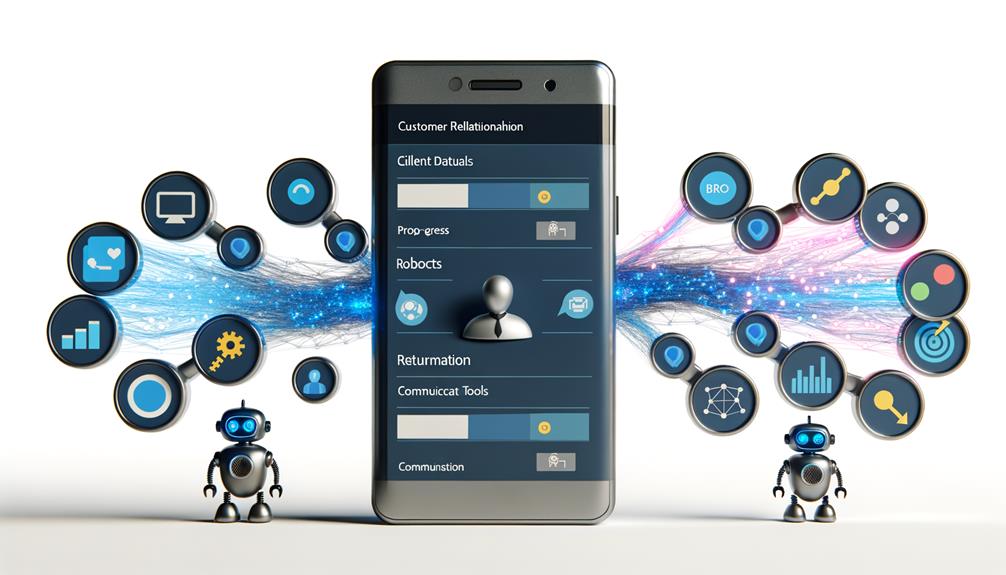AI-driven lead scoring revolutionizes your sales and marketing strategies. It uses big data, machine learning, and pattern recognition to accurately rank and prioritize leads. The system analyzes client interactions and past data, making manual prioritization obsolete and offering dynamic adaptation. Implementing AI in lead scoring, you see increased conversions and improved KPIs. However, the preparation of data for AI can be complex – it requires careful implementation and continuous monitoring. Still, the result is increased productivity and a more efficient use of resources. Don't stop here, there's more to explore on enhancing your lead retention strategies with AI.
Understanding AI Lead Scoring
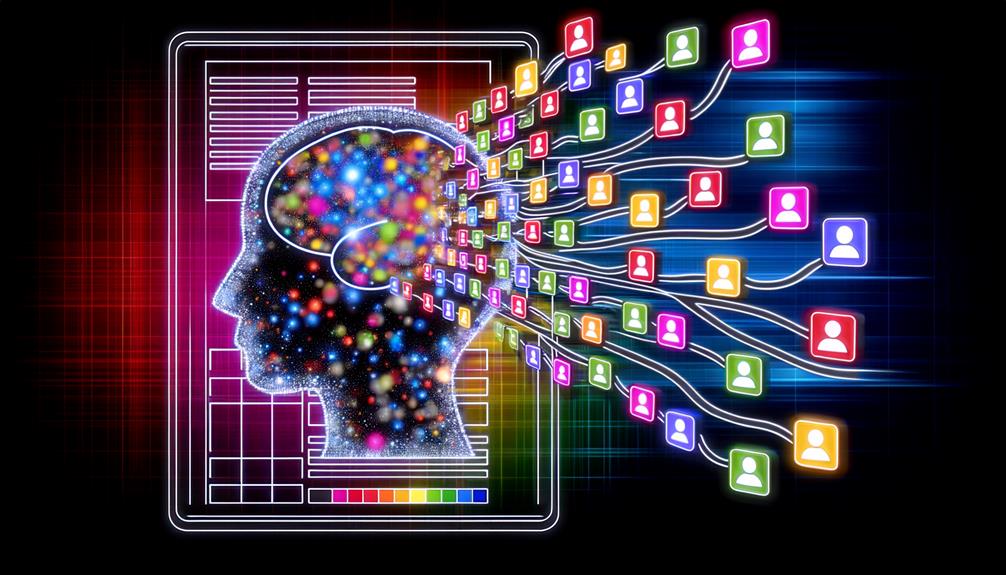
To understand AI lead scoring, you'll need to explore its core aspects: it's an approach that leverages AI, machine learning, and big data to analyze customer interactions and data, assigning scores based on conversation quality, customer behavior, and historical data, thereby identifying potential customers with greater accuracy and less manual effort. Basically, an AI lead scoring system automates the lead scoring process, reducing the burden on your sales and marketing team. AI uses data to rank leads, providing real-time identification of those with the most potential, enabling efficient lead management. So, you're not just chasing leads, you're pursuing the right customer. This method of scoring significantly improves the accuracy and efficiency of your marketing efforts, transforming the way you approach lead generation.
Traditional Versus AI Lead Scoring
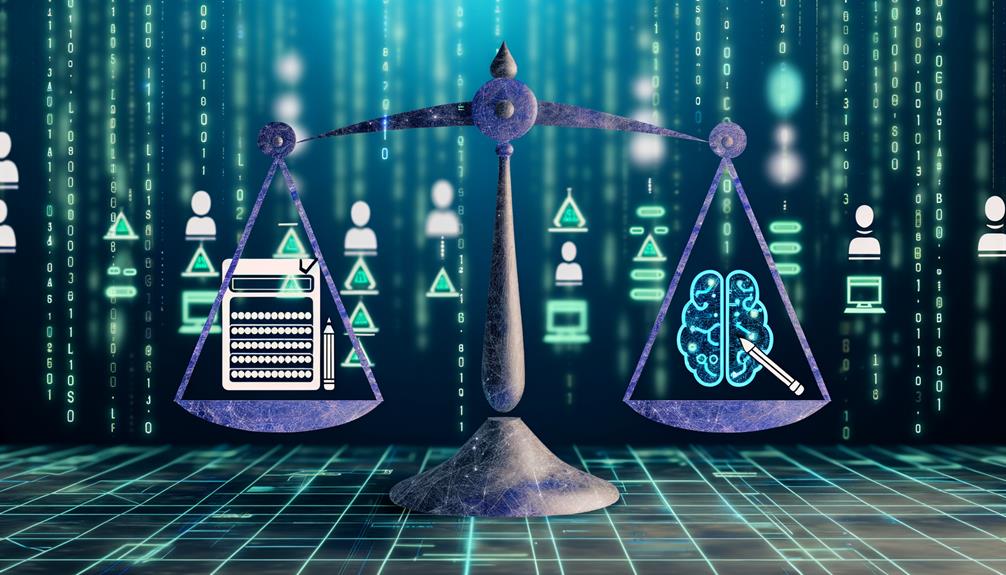
When you compare traditional lead scoring and AI-driven scoring, you'll find that the former relies on manual prioritization based on predefined criteria, whereas the latter uses machine learning algorithms to analyze and score leads. Traditional lead scoring operates within your CRM system, analyzing a limited number of data points, such as customers' demographic information. On the other hand, predictive lead scoring, powered by an AI system, dynamically adapts based on patterns in data, providing more accurate predictions. This automated process optimizes marketing and sales efforts by prioritizing leads most likely to convert. While AI lead scoring software enhances efficiency, it still needs human intuition and experience alongside AI for best results.
Benefits and Drawbacks of AI Lead Scoring
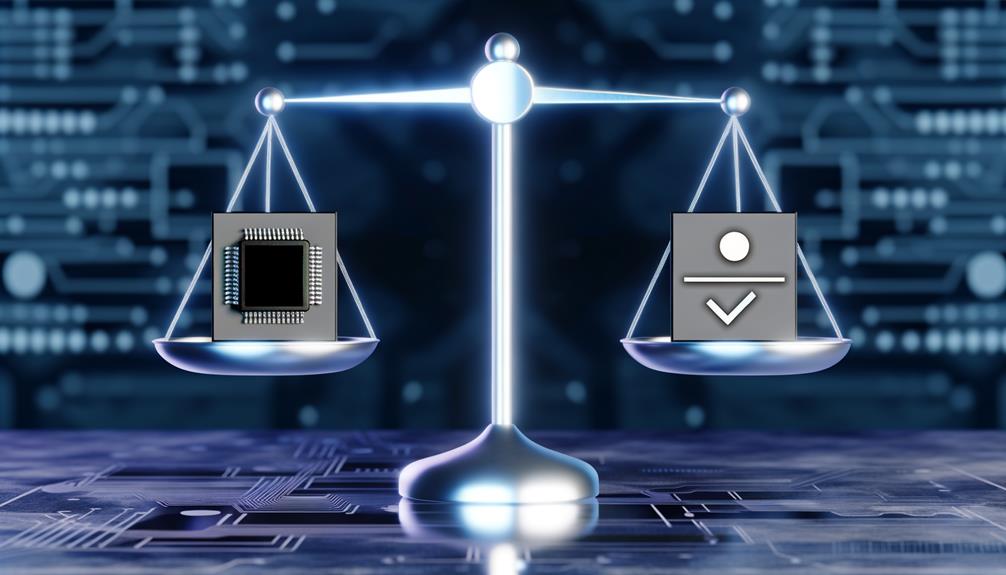
Delving into the benefits and drawbacks of AI lead scoring, you'll find it's a game-changer with its ability to increase marketing conversions, decrease churn rates, and provide valuable insights for enhancing KPIs, yet it's not without its challenges. Using AI, your sales and marketing team can leverage sophisticated lead scoring models to enhance the customer journey and perfect your marketing mix. The benefits of AI include identifying at-risk customers sooner, enabling proactive measures to improve your lead retention. However, preparing the data for AI applications can be complex and time-consuming. Additionally, while AI can greatly boost conversion rates, it's important to remember that this technology is a tool, not a magic bullet. Careful implementation and ongoing monitoring are key to reaping its full benefits.
Implementing AI in Your Lead Scoring Model
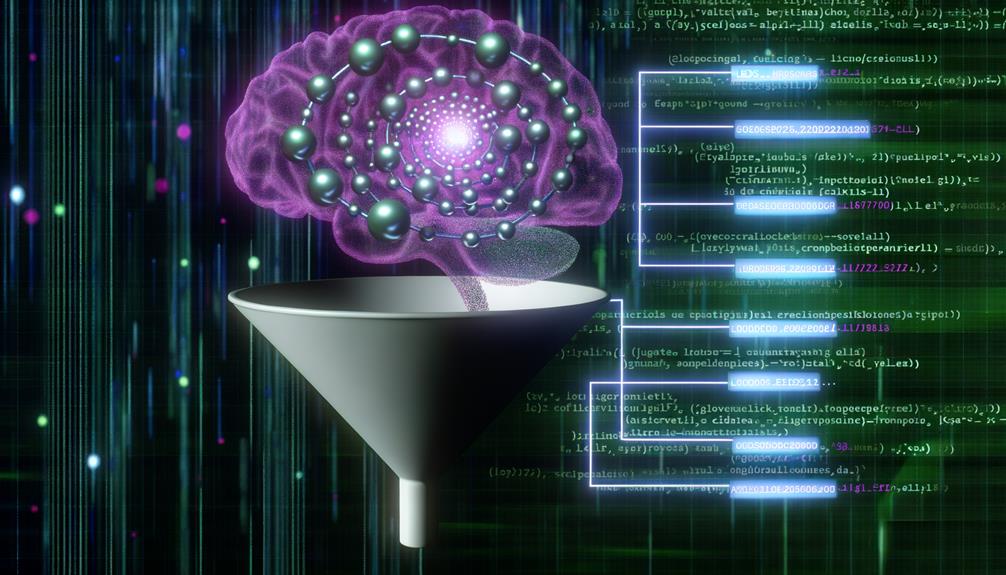
Incorporating AI into your lead scoring model isn't just a tech-forward strategy; it's a proven method that can drive significant improvements in your sales and marketing outcomes. By integrating AI-driven lead scoring, you're leveraging customer data and predictive analytics to prioritize sales leads, resulting in increased conversion rates. How does it work? AI automates processes that would typically require manual evaluation. This reduces costs and allows your team to focus on high-quality leads. The result? Increased productivity and more efficient use of resources. Businesses implementing AI in lead scoring have seen up to a 30% increase in conversion rates, a 20% boost in sales productivity, and a 25% reduction in customer acquisition costs. Embrace this approach and start reaping its benefits.
Optimizing AI Lead Scoring System
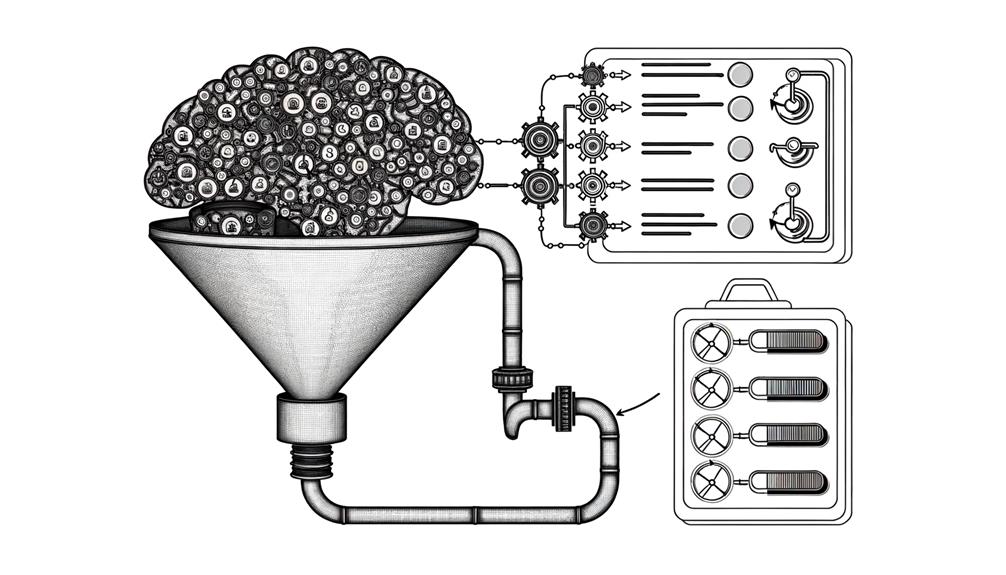
Harnessing the power of AI lead scoring systems can dramatically boost your marketing conversions and slash churn rates by delivering precise insights and predictions. To optimize these scoring systems, you should integrate them with your Customer Relationship Management (CRM) system. This allows predictive AI to leverage both the historical and real-time data for effective lead scoring model training.
Marketing automation is another key aspect where AI helps. It improves your lead scoring by considering multiple variables like website behavior, past interactions, and other demographic data. This complex analysis that AI enables, simplifies lead scores interpretation and aids in identifying high-quality leads faster. Remember, the more accurate your training data is, the better your AI lead scoring helps in enhancing customer engagement and driving sales.



